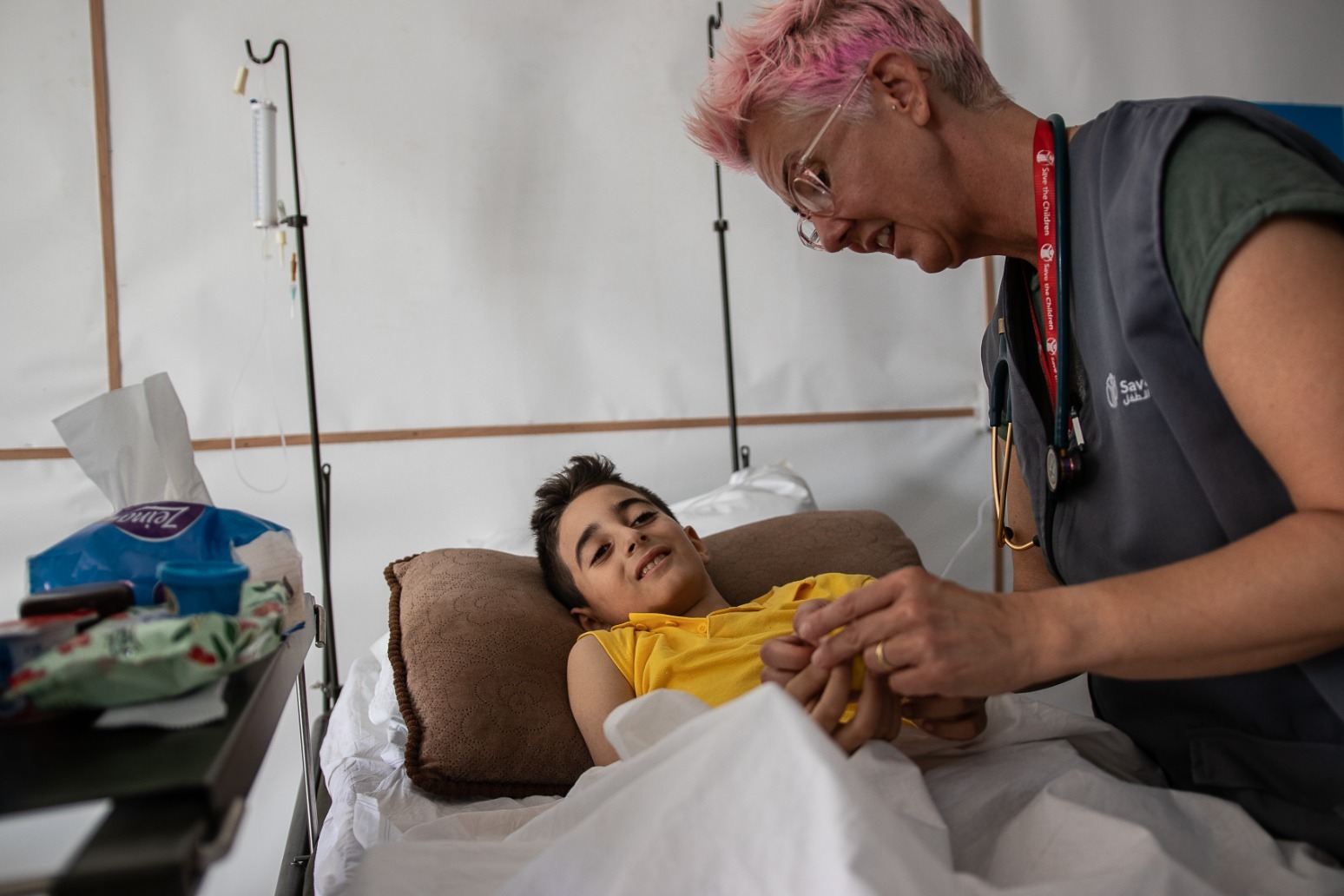Love Local, Love Music!
Listeners:
Top listeners:
-
 play_arrow
play_arrow
Rother Radio (128K) Love Local, Love Music!
-
 play_arrow
play_arrow
Rother Radio (64K) Love Local, Love Music!
-
 play_arrow
play_arrow
Rother Radio (Doncaster) (128K) Love Local, Love Music!
-
 play_arrow
play_arrow
Rother Radio Xmas Love Local, Love Music!
-
 play_arrow
play_arrow
Rother Radio – Special Announcement Love Local, Love Music!


Leading charities have warned that an “enormous” increase in humanitarian aid will be needed after an initial agreement for a ceasefire in Gaza.
Officials announced on Wednesday that Israel and Hamas had agreed to a ceasefire deal after weeks of negotiations in Qatar, raising the possibility of winding down of fighting between the two sides.
At least a dozen British citizens and some 1,200 Israelis were killed in the surprise Hamas cross-border attack on October 7 2023 – which triggered months of fighting.
Israel responded with a fierce offensive that has killed more than 46,000 Palestinians, according to local health officials, displaced an estimated 90% of Gaza’s population and sparked a humanitarian crisis.
Catherine Russell, executive director of Unicef, said the announcement was “long overdue for the children and families of Gaza who have endured more than a year of bombardment and deprivation”.
She said: “The scale of humanitarian needs is enormous, and Unicef and partners are ready to scale up our response.
“The ceasefire must, finally, afford humanitarian actors the opportunity to safely roll out the massive response inside the Gaza Strip that is so desperately needed.
“This includes unimpeded access to reach all children and families with essential food and nutrition, health care and psychosocial support, clean water, and sanitation, education, and learning, as well as cash assistance and the resumption of commercial trucking operations.”
Ms Russell said less than half of Gaza’s 36 hospitals were functional, water production was at less than 25 per cent capacity and 95 per cent of Gaza’s school buildings have been damaged or destroyed.
Oxfam GB chief executive Halima Begum said people living in Gaza had been “systematically deprived of the essentials to live” during the conflict, and that food and water were being used “as weapons of war”.
She said: “With all of Gaza at risk of famine, one of the key priorities must be the immediate and unrestricted flow of life-saving aid to reach those in need, as well as the safe release of Israeli hostages and Palestinian detainees.”
David Wightwick, chief executive of UK-Med, a humanitarian medical NGO, said: “We welcome the news of a ceasefire and urge all parties to ensure it is implemented immediately and fully.
“The cessation of hostilities is a critical step toward alleviating the immense suffering of civilians caught in the conflict. However, the ceasefire alone is not enough.
“We call for an immediate and significant increase in humanitarian aid to Gaza, including medical supplies, food, and clean water, to address the devastating consequences of this crisis.”
William Bell, head of Middle East policy and advocacy at Christian Aid, said the ceasefire was welcome but, by itself, did “nothing to address the root causes” of the conflict.
He said: “World leaders need to immediately support a locally led reconstruction plan for Gaza to provide hope for the future.
“Hope for the future will only come with accountability for the past. The past year has seen a blatant disregard of international law, which is a danger to civilians everywhere.”
Plan International UK’s chief executive Rose Caldwell said the atrocities committed against the civilians of Gaza were “a stain on the world’s conscience.”
She added: “Gaza’s children have endured more than any child should, and after more than 15 months of appalling violence, the youngest will never have known life without hunger, fear, and destruction.
“Leaders must put an end to this nightmare and use this opportunity to push for a permanent ceasefire combined with a massive influx of humanitarian aid.”
Published: by Radio NewsHub
Written by: Radio News Hub
Similar posts
Now Playing
Now playing:
On Air Now

Through The Night
The Best Variety of Hits Through the Night!
Staying up late or can't sleep? Rother Radio plays the best variety of music to see you through the night!
closeSponsored
Weather
Upcoming Local Event
Latest from Facebook
Search Rother Radio
Contact Us
- https://www.rotherradio.co.uk
- 01709 257 175
- studio@rotherradio.co.uk
About Us
Rother Radio – Love Local, Love Music! → Discover more
Our Partners
Rother Radio is owned by Rotherham Broadcasting CIC








